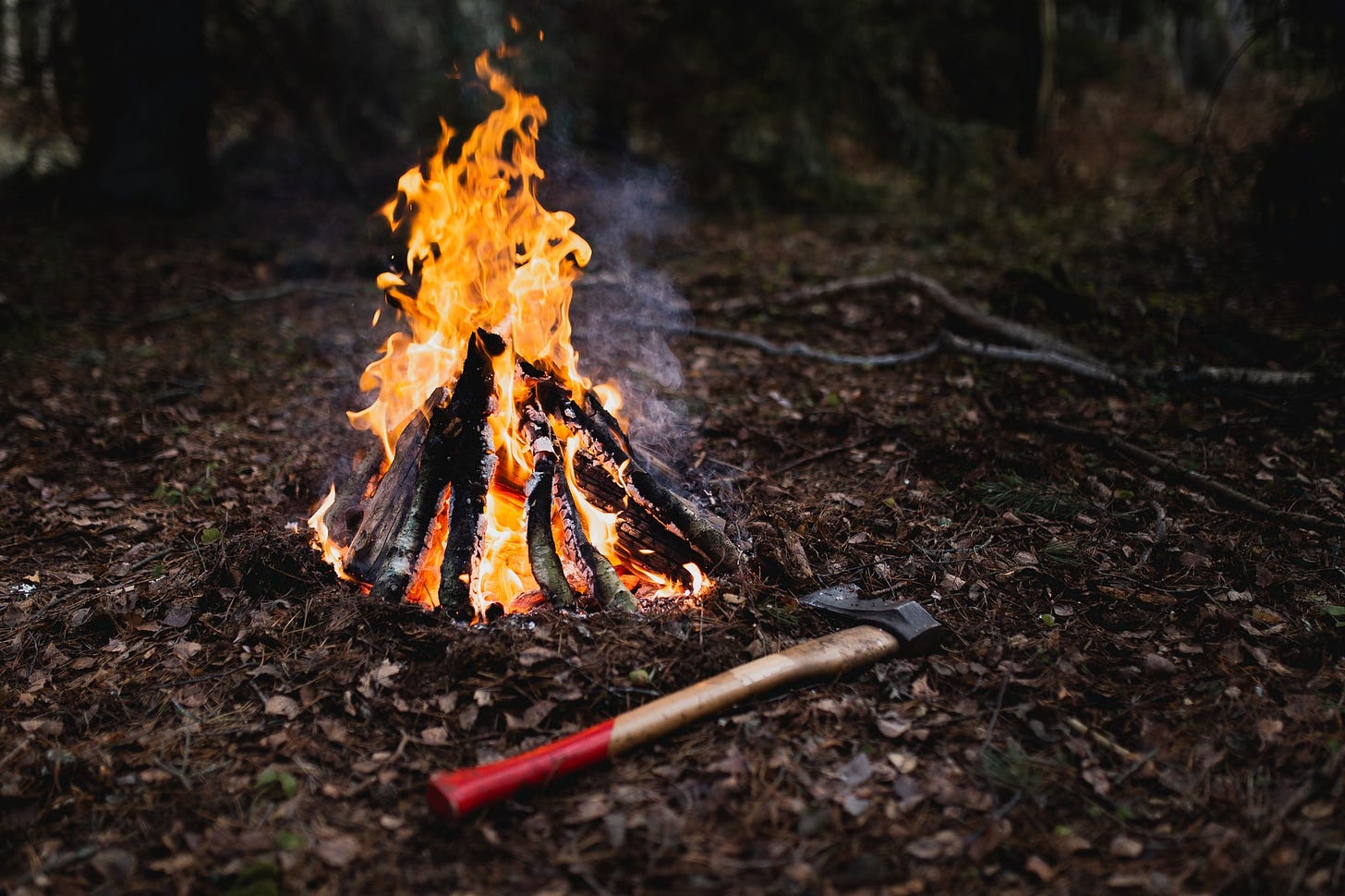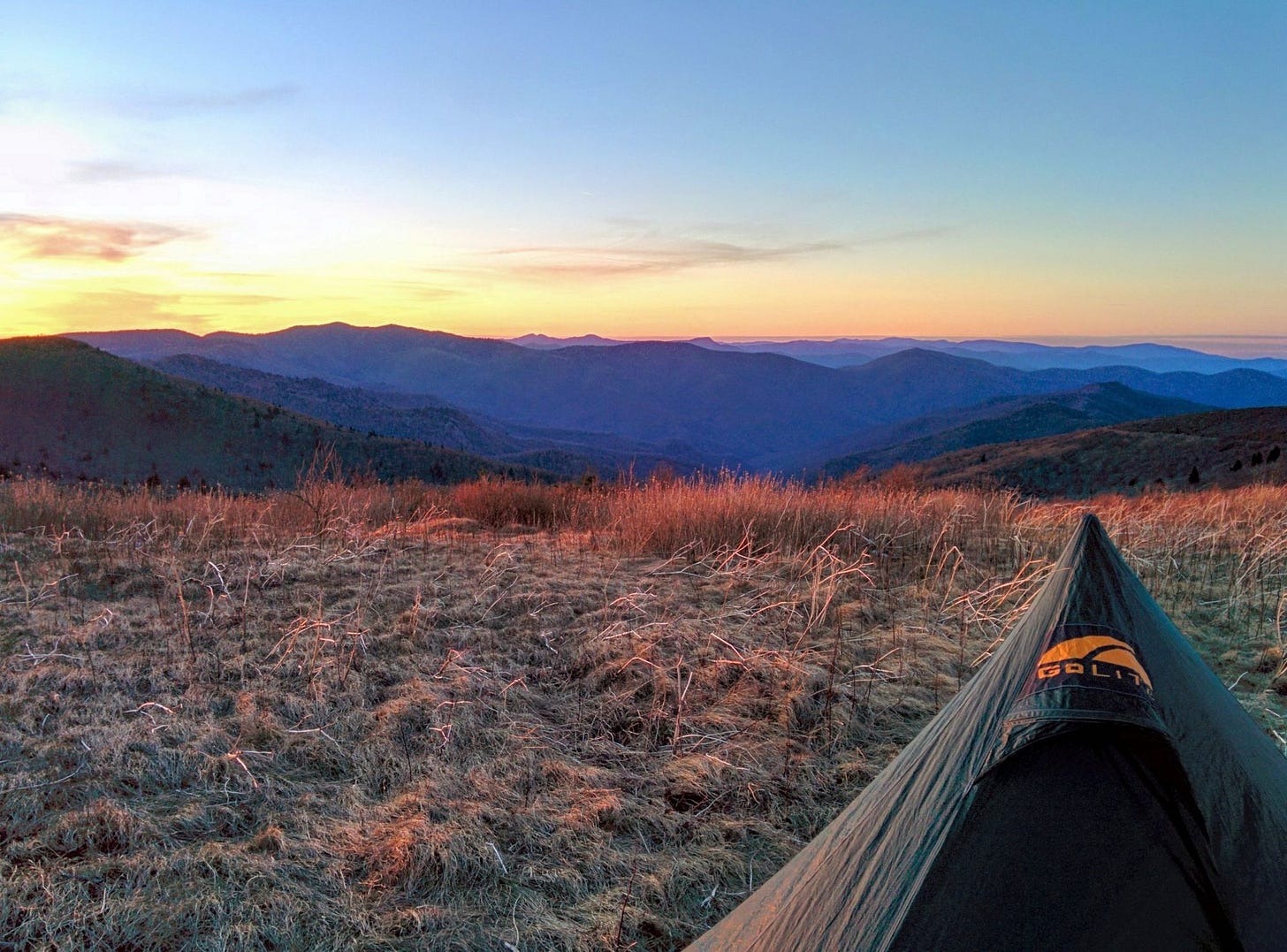
Last week some messy weather rolled into the Carolinas. Snow, sleet, 20-degree temps may be a wintertime staple in the upper half of the continent, but down here they are a big deal. Schools let out early, social media forecasters snapped into overdrive, and everything slowed down.
When I heard the forecast, I said to my wife: “Backpacking weather!”
As an all-season backpacker, I have often headed into the North Carolina mountains on the first weekend in January. Unpredictable cold, exposure, snowy rain, whipping wind are not just a part of those trips, they are the best part. They press, stretch, and beat me up—push me out of my comfortable zone into a space that wakes me up.
I was thinking about the value of discomfort a few weeks ago while in the middle of a fast that our church does every January.
Folks usually approach this spiritual discipline of fasting in a variety of different ways: cutting out all or certain types of media, food, sugar, or habits of consumption. The big idea is to willfully abstain from things that are not necessarily bad, for the purpose of becoming more spiritually attentive. (Eating food obviously isn’t a bad thing; neither is enjoying sugar or coffee, watching television, or social media—but sometimes habits of unhealthy dependency creep up around those things in our life; and a season of voluntary stripping moves us back to the unclouded essentials.)
A few days into my own version of the fast, I had one of those state-the-obvious revelations, which was that this discomfort I’m experiencing isn’t normal for me.
Experiencing meaningful discomfort isn’t normal for me.
That probably puts me in a global minority. You’d be hard-pressed to identify a type of person with greater proximity to comfort and convenience than a middle-class white guy living in America in the year 2020. Not only do I have access to clean water, sanitation, healthy food, and basic modern healthcare, but I can choose to enjoy myriad other conveniences, like ordering groceries from my mobile phone or video-chatting with a doctor.
Convenience is not bad, but for me convenience unchecked runs the risk of breeding complacency. There’s nothing wrong with comfort, familiarity, and abundance, but too much of those can usher in dullness, myopia, and a sense of entitlement. At least for me.
On the other hand, periodic exposure to stretching, discomfort, and suffering can bring clarity, alignment, and perspective.
A few years ago in January I headed out to the Shining Rock Wilderness area in western North Carolina.
I pitched my tent atop a mountain in ten-degree weather. The gusting winds kept me from starting a campfire until I dug a two foot deep hole. At night I was kept warm cocooned in two 20-degree down sleeping bags, three pairs of pants, a fleece, jacket, three shirts, gloves, face mask, and hat. My water came from boiling down chunks of ice.

The objectives out there were simple: stay warm and eat. Also: don’t die.
At the end of that intense weekend, my emotions were raw and my heart was pliable.
In the days directly afterward I experienced mental, spiritual, and relational breakthrough. Direction for a key decision came into clear focus. Priorities were easier to identify. And relationships gained a new depth.
I attribute much of that fruitful growth to the brief period in the wilderness: without the initial comfort detox, I don’t think the ensuing breakthroughs would have come as easily.
That’s where I see the parallels to fasting. You don’t have to brave extreme elements to intentionally put yourself into a position of intentional stretching. Instead, simply take a few days (or weeks) to abstain from habitual media, pleasure foods, or treasured comforts—and watch the ensuing soul clarity bring new refreshment.


